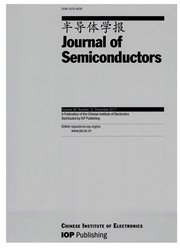

 中文摘要:
中文摘要:
The electron transport through a Rashba ring with a magnetic flux and driven by a temperature difference is investigated. It is found that the spin interference effect induced by the Rashba spin-orbit interaction and by the magnetic flux can break the balance between the spin-up and spin-down component currents in the thermally driven charge current and thus result in a spin current. The analytical derivation and numerical calculations reveal that the magnitude, sign, peaks and spin-polarization of the generated spin current can be readily modulated by the system parameters. In particular, with some choices of the parameters, the spin polarization of the generated spin current can reach 100%, that is, a fully spin-polarized thermospin current can be produced. These results may help the use of the spin-dependent Seebeck effect to generate and manipulate a spin current.
 英文摘要:
英文摘要:
The electron transport through a Rashba ring with a magnetic flux and driven by a temperature difference is investigated. It is found that the spin interference effect induced by the Rashba spin-orbit interaction and by the magnetic flux can break the balance between the spin-up and spin-down component currents in the thermally driven charge current and thus result in a spin current. The analytical derivation and numerical calculations reveal that the magnitude, sign, peaks and spin-polarization of the generated spin current can be readily modulated by the system parameters. In particular, with some choices of the parameters, the spin polarization of the generated spin current can reach 100%, that is, a fully spin-polarized thermospin current can be produced. These results may help the use of the spin-dependent Seebeck effect to generate and manipulate a spin current.
 同期刊论文项目
同期刊论文项目
 同项目期刊论文
同项目期刊论文
 期刊信息
期刊信息
